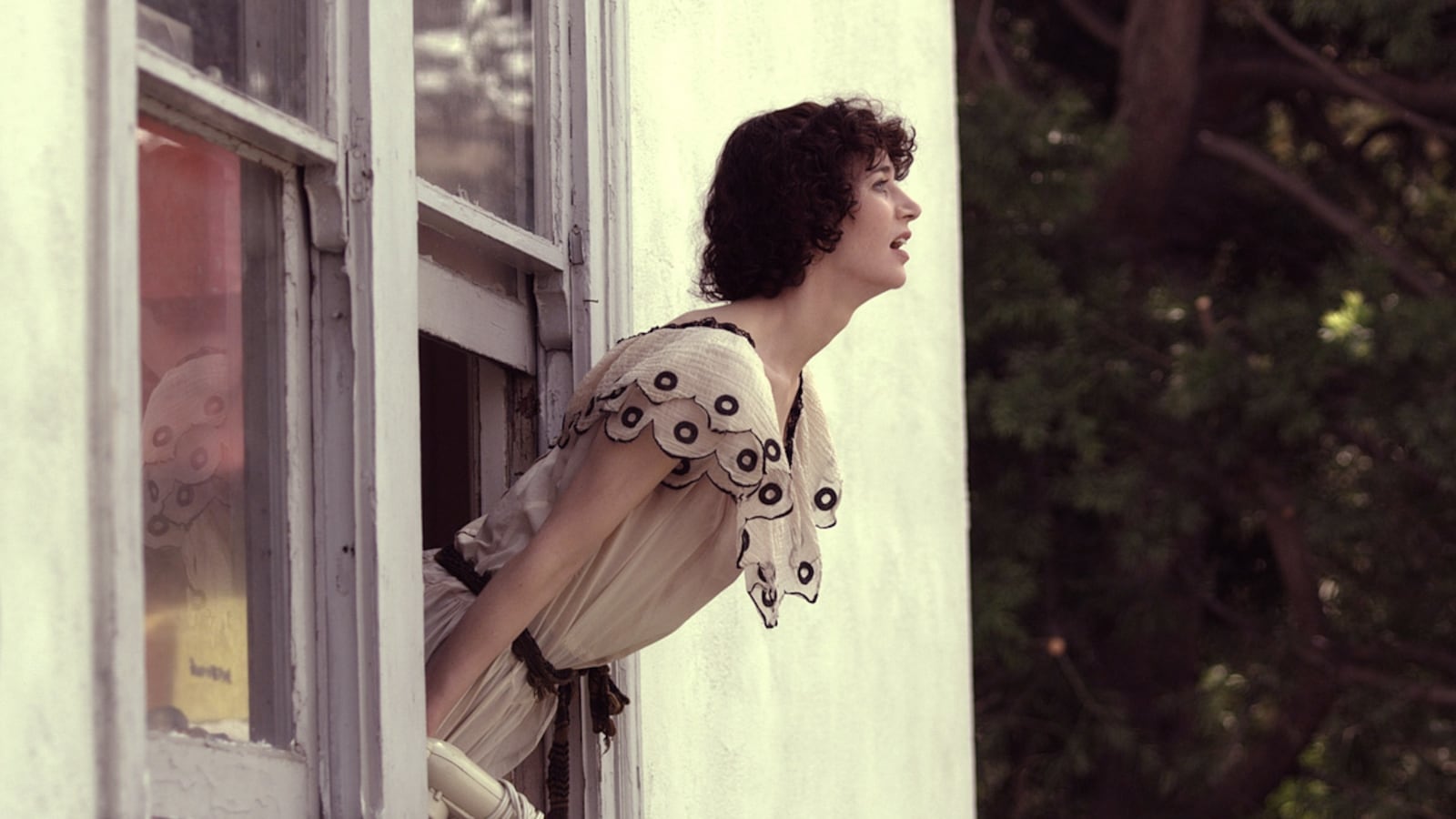Is there such thing as a sincerely calculated naïveté? Or put another way, does Miranda July have any idea of how annoying she is?
That’s how The Village Voice began its methodical takedown of Miranda July’s film The Future, which opens in theaters Friday. With the notable exception of Michael Bay, few filmmakers provoke ad hominem attacks quite like July, whose brand of boho-ethereality is both the subject of great scorn and lavish praise.
“I like to love and hate things too and I think that’s what you do as a fan and as a viewer,” says July, whose impossibly blue eyes look as though they’re crying out for help. “But I don’t think what’s interesting about my work is that people love it or hate it. I think that the work is interesting.”
Borne out of a performance at New York City’s The Kitchen back in 2007, The Future centers on a blasé thirtysomething couple, Sophie (July) and Jason (Hamish Linklater), whose striking similarity to one another has led to a loss of sexual appetite. They decide to adopt a stray cat, Paw Paw, in the hopes that it will fill the void in their relationship. And believe it or not, Paw Paw, who has just six months to live, narrates the film in a scratchy, high-pitched voice (supplied by July.)
“I saw a stray cat get hit by a car on a day when I was already writing a monologue that I didn’t really know who the speaker was,” says July. “I was just free-writing outside of my office in L.A., and they came together. It was so shocking and upsetting to see this cat get killed, and the monologue became the cat’s.”

With thirty days to go before the adoption, Sophie and Jason make a pact to quit their jobs and pursue their passions—she decides to create a new dance every day for thirty days in order to become a YouTube sensation, and he volunteers for an environmental organization. Sophie then wanders further astray, sparking a sexual relationship with a forlorn single father.
“In general I think I’m always wanting something to look forward to, and I’m optimistic in a way that generally takes me out of the present,” says July. “I assume the good things are still to come and often don’t really notice what’s good about right now.”
Born Miranda Jennifer Grossinger, July got her surname from a fanzine she created with her high school friend—called Snarla—about the exploits of two girls, Ida and July. After dropping out of UC Santa Cruz, she moved to Portland, Oregon, and became a performance artist, quickly establishing a cult following. July also immersed herself in the Riot grrrl femme-punk scene, playing in the group The Need, and running in the same circles as bands Bikini Kill and Sleater-Kinney.
Following a series of short films, July made her feature filmmaking debut in 2005 with Me and You and Everyone We Know. The film, about a lonely shoe salesman, played by John Hawkes, who falls for an amateur video artist (July), won her immediate acclaim, including the Caméra d'Or at the Cannes Film Festival, a Special Jury Prize for “Originality of Vision” at Sundance, and was eventually named the fifth best film of the decade by critic Roger Ebert.
While debuting her film at the 2005 Sundance Film Festival, July met director Mike Mills, who was also there with his first feature, Thumbsucker. They have since married, and live together in Los Angeles, but work in entirely separate spheres. “The privacy was way more useful than the excellent notes we could get out of each other,” says July.
Despite their lack of creative communication, Mills’ recent film, Beginners, explores many of the same themes as The Future. It centers on a thirtysomething man, played by Ewan McGregor, whose 75-year-old father (Christopher Plummer) reveals that he’s gay and terminally ill. McGregor’s character communicates with his father’s dog as a coping mechanism.
“[Mike and I] live together and share a life, so elements of both our movies are about being in a relationship, but the thing is neither of us wrote about our problems. That would seem too personal,” says July. “I think we’re both drawing from past relationships and things that we had gone through before we knew each other.”
While Mills’ film is indeed based on his father coming out of the closet at 75, five years before his death, the fractured relationship in The Future—and a pivotal scene in which one of the characters freezes time—was inspired by a difficult incident in July’s past.
“I did have a breakup,” July pauses. “I had an abrupt breakup once where I was realizing what was happening, and I thought, ‘Oh god. I can’t stop this.’”
July’s next project is It Chooses You, a non-fiction book being released in the fall that tracks the stories of 13 people who sold items in Pennysaver catalogs. She conceived the idea while struggling to finish the screenplay to The Future.
When asked why she is the target of such vitriolic attacks, July remains ambivalent. She brushes her curly mop of brown hair from her eyes, and in her delicate voice says, “I don’t have any goal of getting a unanimous response. I want it to be really good and I kill myself for that, but of course it would be weird if everyone agreed with what my idea of good was. The world would feel like a very different place.”






